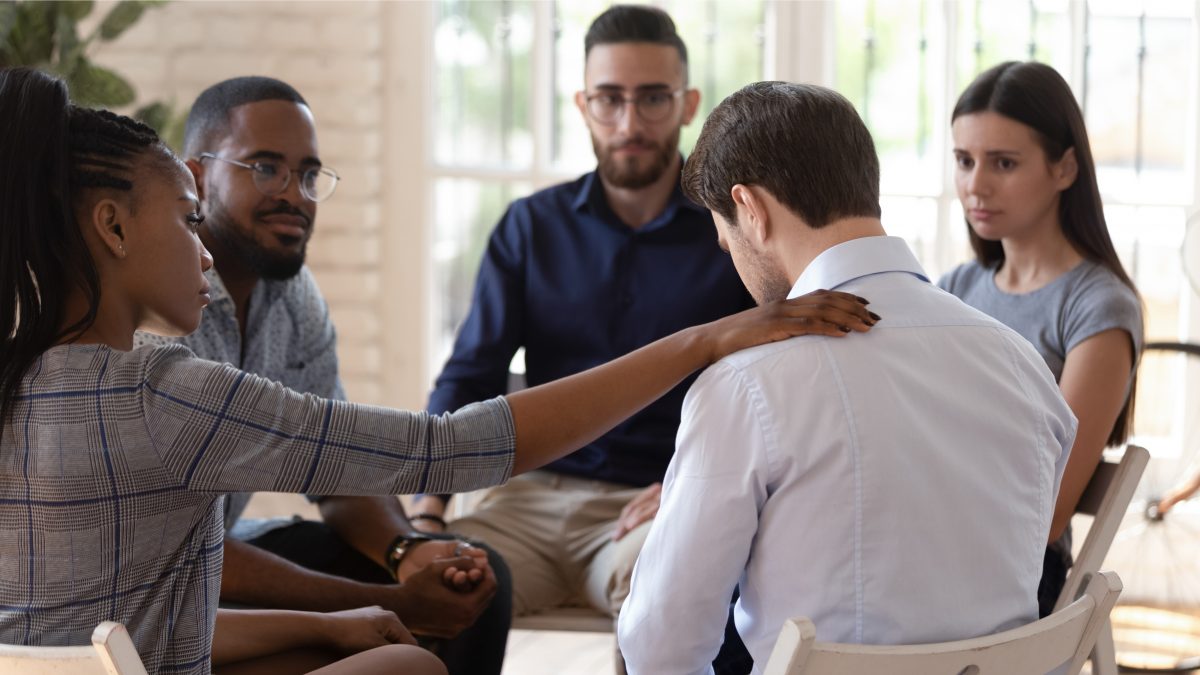A guide to understanding and coping with loneliness
Loneliness is part of being human. No one is exempt. There are times when loneliness will flood our lives, no matter how strong our faith is or how much spiritual or personal growth we have experienced.
The loss of a loved one, the critical illness of a child, making a tough decision, supporting an unpopular cause, and sometimes just doing what we know to be right can isolate us from others in a painful and yet unavoidable way. Sometimes, we cannot find a direct trigger for our feelings – we feel disconnected from the flow of life around us.
We may be tempted to escape the discomfort by running to work, friends, or activities in the same way we used to run to chemicals, food, sex, or other compulsions. While this may provide temporary relief, it usually increases our sense of isolation. As is true with any emotions, the attempt to deny or control the isolation will only give it more power. The willingness to experience what we are feeling often reduces the intensity of the emotion.
While few would consider loneliness enjoyable, it does encourage us to reach out to others and to seek a power beyond. Calling our therapist, sponsor, or friend, getting to a meeting, and sharing our path can help us get out of ourselves healthily. Reading recovery or inspirational literature helps us regain a healthy perspective. If we have suffered a major loss or are feeling grief, we can find a support group that deals with that specific issue.
Many recovering people lead such busy and full lives that loneliness may come from isolation. The solution might be to spend more time on ourselves. We may need to schedule a daily time to centre and work on our daily recovery program. We may be spending so much time and energy on work and service that we do not leave any quality time to spend with family and friends. We need to protect our mutually nurturing relationships by continuing to invest ourselves in them.
The paradox of loneliness
The paradoxical nature of loneliness is not new in recovering people. Before recovery, we believed we were unique and beyond the understanding of mere mortals. Yet, we could not honestly let others know who we were, for we did not know ourselves. We would swing from a grandiosity that told us we were better than others to a deep sense of shame, which made us feel unworthy of any relationships. We drove people away, felt rejected by them, and then rejected ourselves. While believing our addiction or compulsion would solve all our problems, we defiantly denied the existence of any Power greater than ourselves.
Our journey away from loneliness is equally filled with paradox. We learn we are neither perfect saints nor perfect sinners. We are simply human. Although we are capable of great wrongs, there is also a fundamental good in each of us. As we begin to accept ourselves and others, we discover frequently that by sharing our weaknesses and vulnerabilities, we gain mutual understanding and connectedness. By sharing our powerlessness and brokenness with others, we are confronted with the need for a Power for good, unity, and healing – a Power greater than our mutual selves – to restore a sense of belonging.
As we examine some of the ways in which this restoration occurs, we must remember that it is not an either/or proposition. We cannot be reconciled with ourselves unless we also work toward healthy relationships with others.

Connecting with ourselves
For those of us for whom a complicated lie was easier than a simple truth, who kept secrets not only from others but from ourselves, or who lied to God and knew it and lied about knowing it, getting honest is a formidable task. However, to reach a point where we are comfortable alone, we must come to know ourselves. We must replace our old lies about who we are and are not with new, hard-fought-for truths. We begin to understand who we really are through working the inventory steps.
The First Step tells us we are powerless and unmanageable. The Fourth Step shows us our strengths, weaknesses, motives, feelings, and values. Many find it helpful to repeat the Fourth Step inventory periodically as we grow in honesty and our insights change our understanding of our past.
We should do a special Fourth Step when loneliness becomes a problem. Do we have grief issues that are blocking intimacy? Were there some things we could not tell in our Fifth Step that are still fuelling our sense of shame? When has loneliness been a problem in our lives before? What was happening in terms of situations and feelings? Can we see patterns emerging? What was our part in it? How can we use our program to work through this situation in a healthy way? What can we learn from it?
Connecting with others
We discover in recovery that we are not the self-sufficient creatures we once thought. For most of us, relearning how to establish satisfying relationships with others began at 12-step meetings. Our addiction and willingness to recover led us to a fellowship of people who understood and accepted us without reservation.
It is said that hearts are opened from the inside. For many of us, the sense of shame was so great that we were incapable of venturing out to others or of receiving the warmth that was so freely offered. Our hearts opened very slowly. It was in the environment of deep commitment to mutual recovery that we began to trust.
We are responsible for our connection with our therapist and recovery group’s presence always, and that is a two-way responsibility for each of us. We must be willing to extend our hand to the newcomer and share our experience, strength, and hope.
We must remember that we, too, are always “newcomers” in that we have only a daily reprieve from our illness – whether it be chemical dependency, overeating, sex addiction or codependency. Where is our trust level today? Are we going toenough meetings? Are we keeping appointments with our therapist? Are we sharing our feelings of loneliness, or is false pride holding us back?
For any addiction-related issues, call Freephone at 0800 140 4044
Freephone: 0800 140 4044
Local rate: 0300 330 3040
Contact us here to find out more



